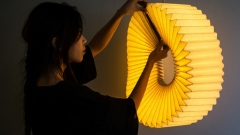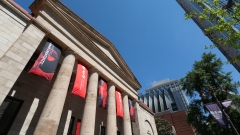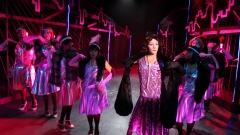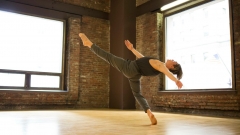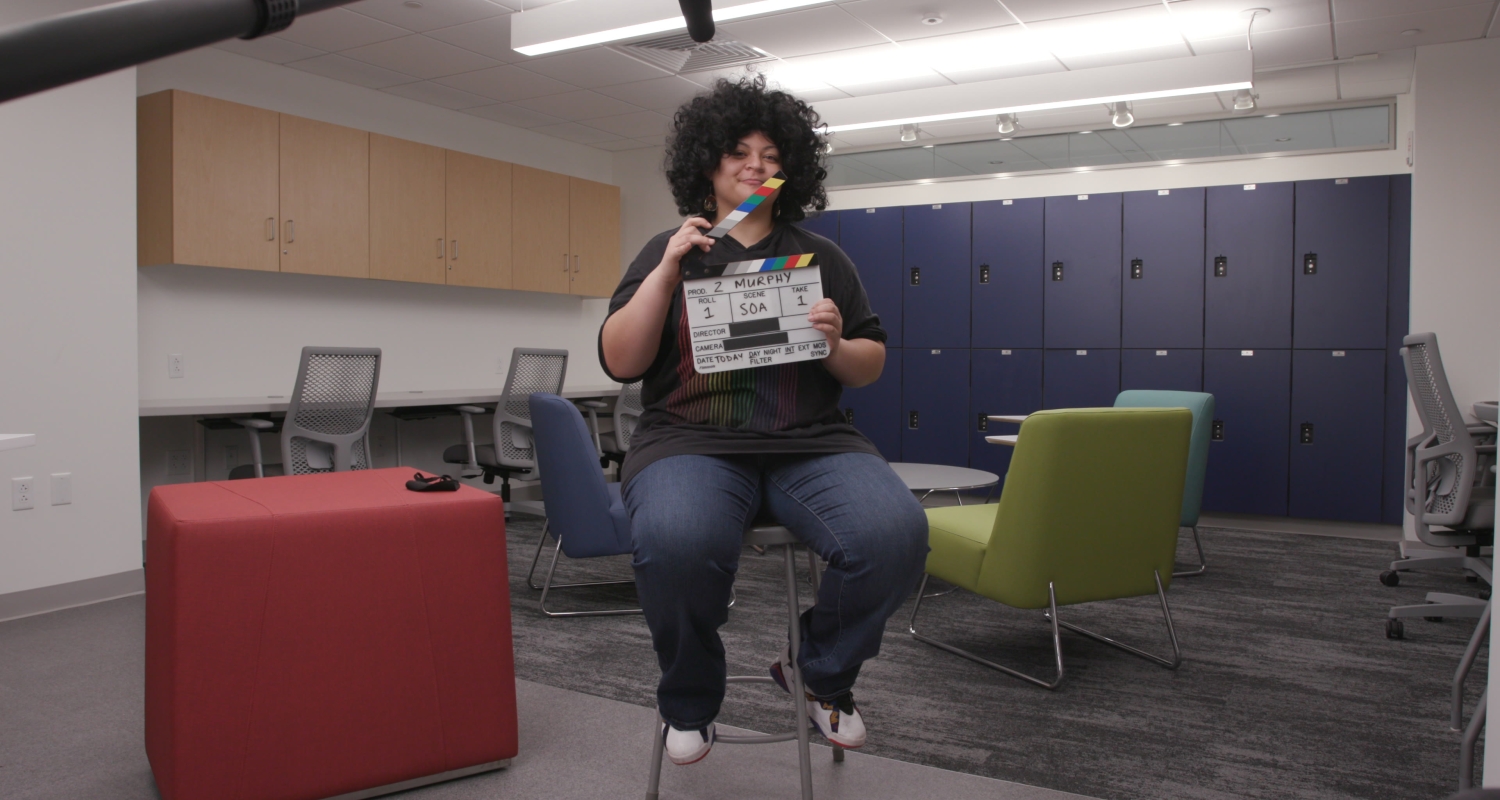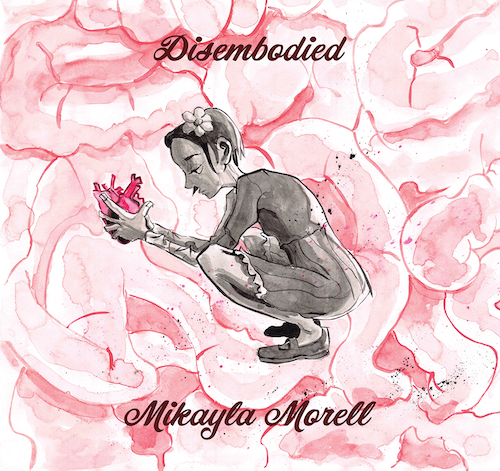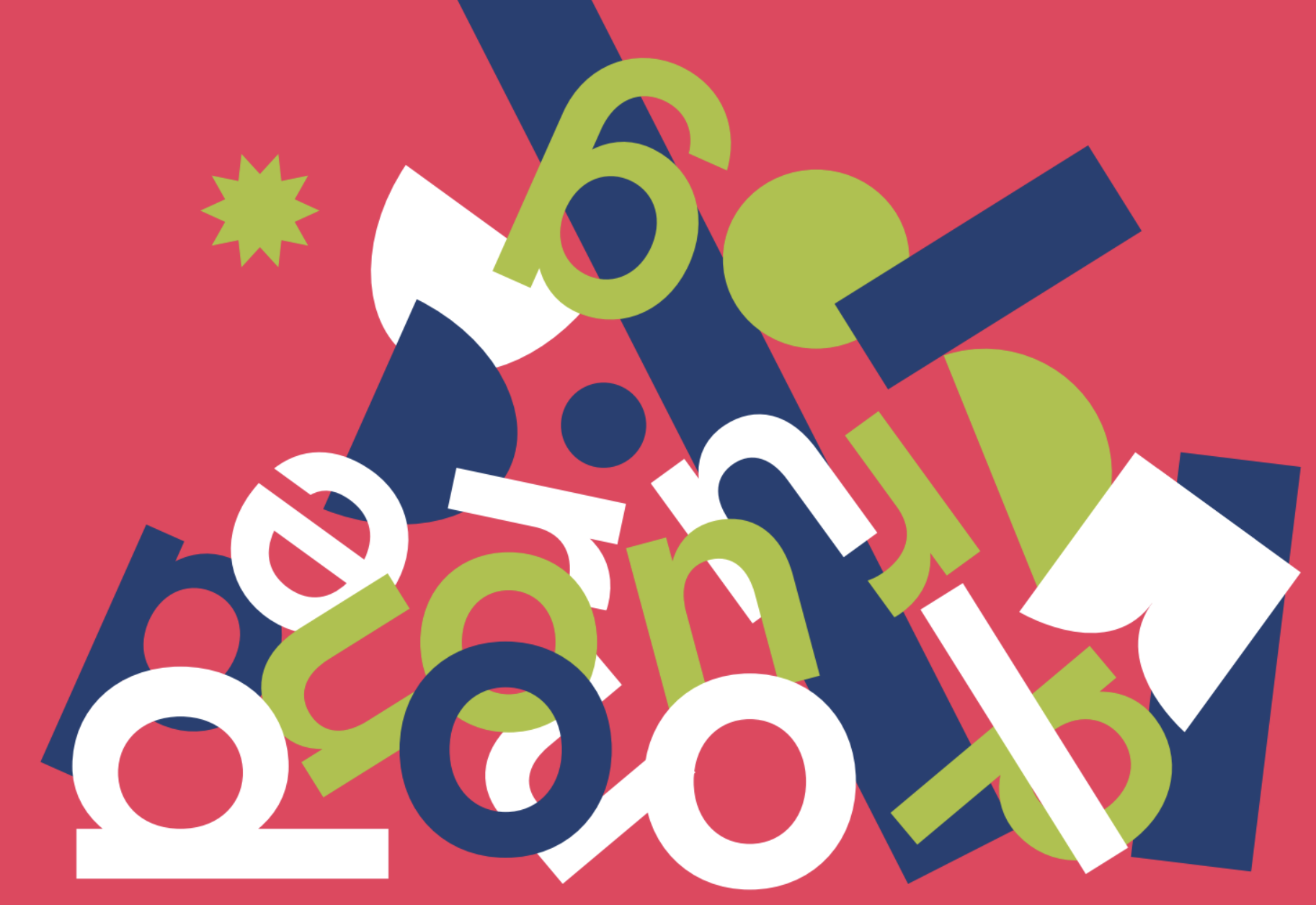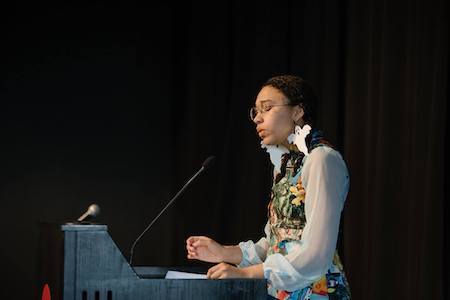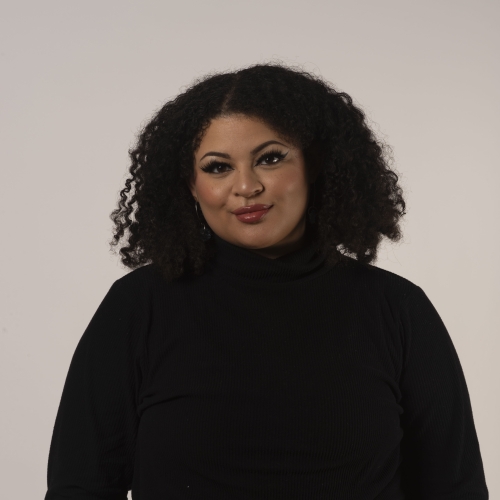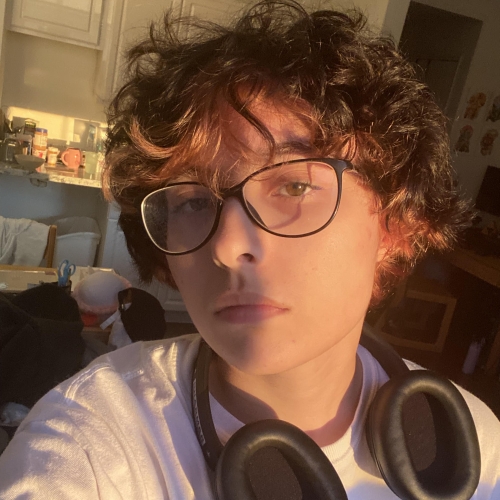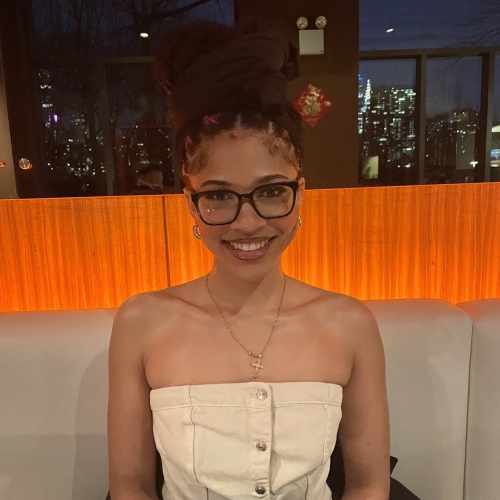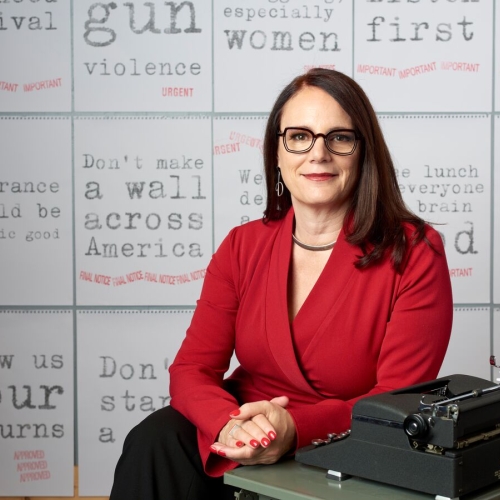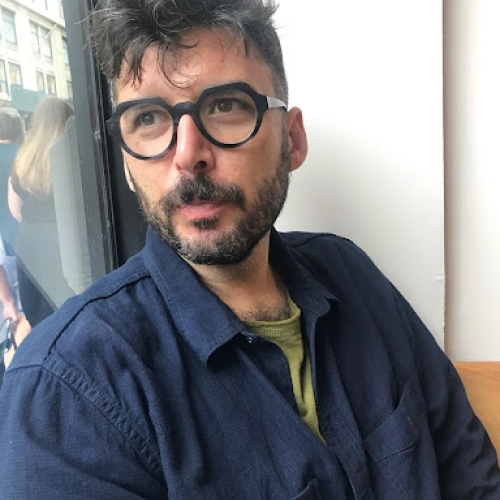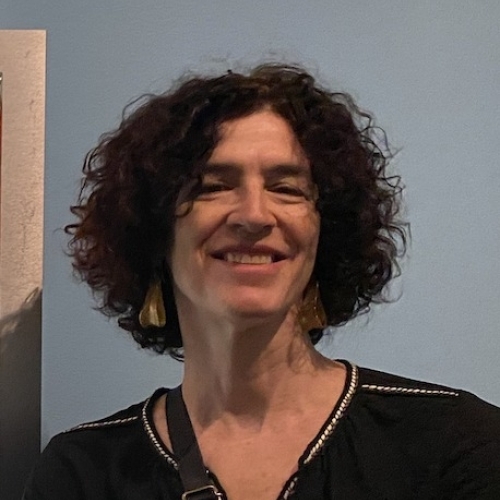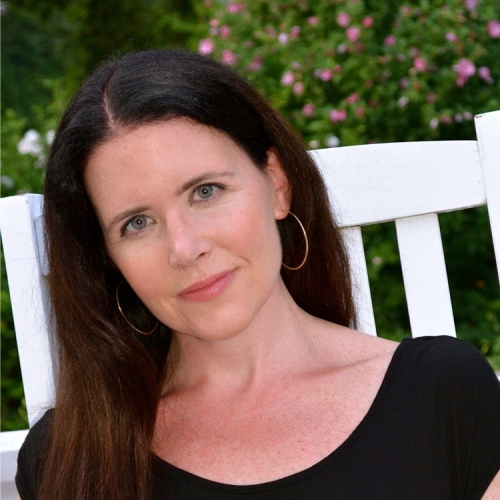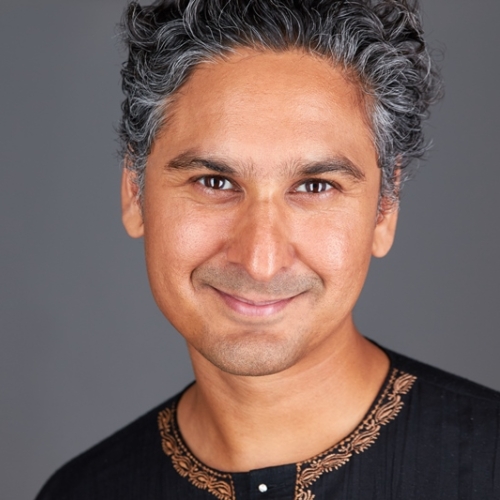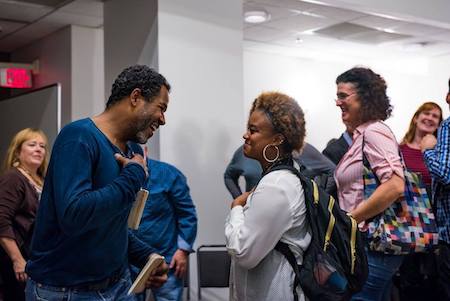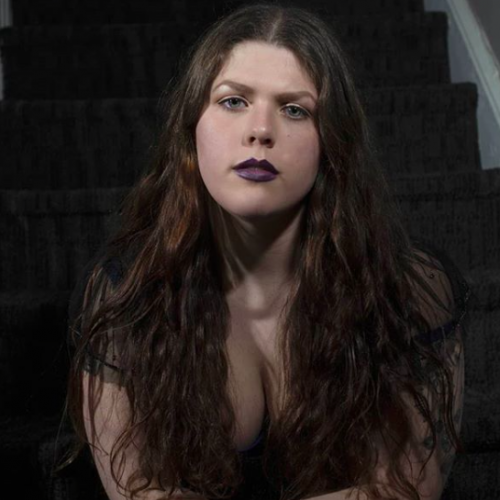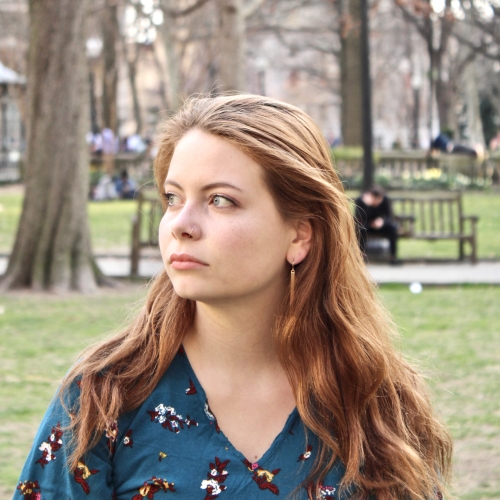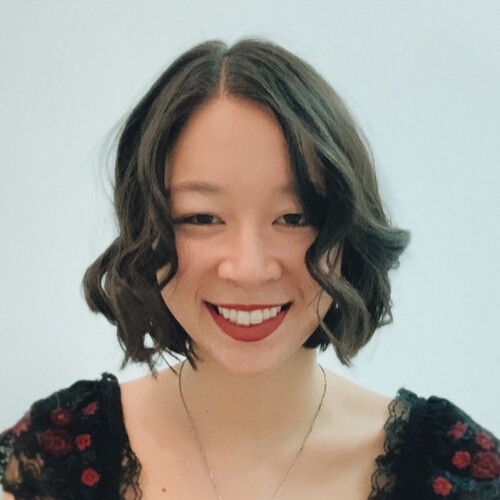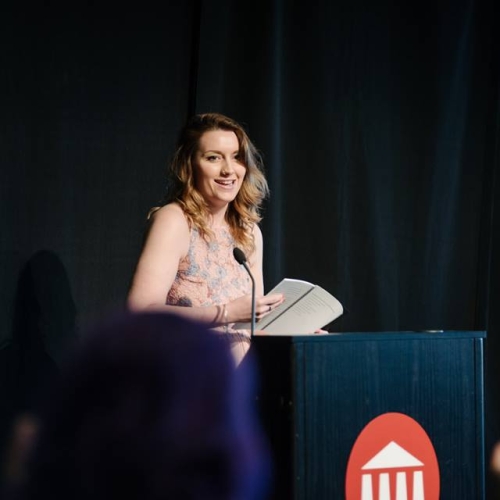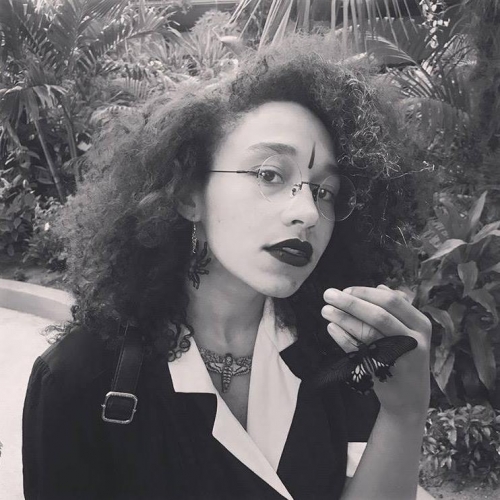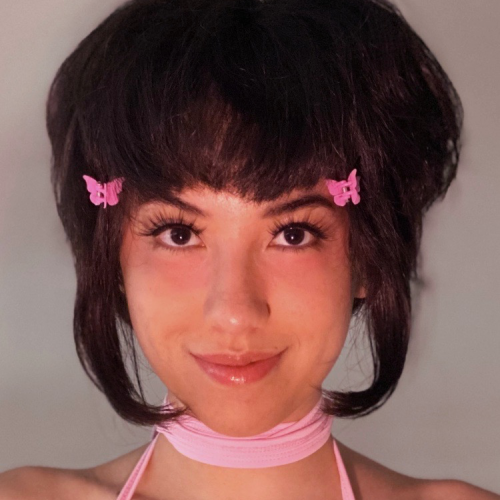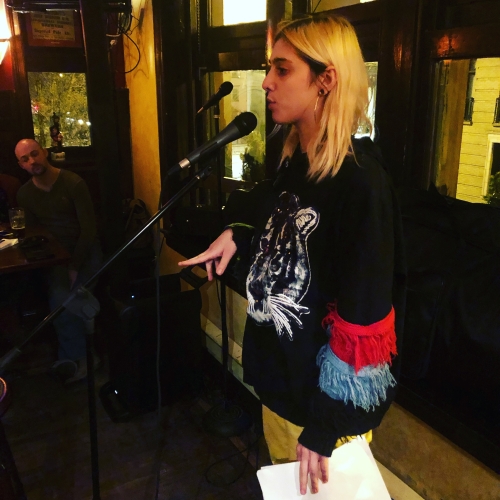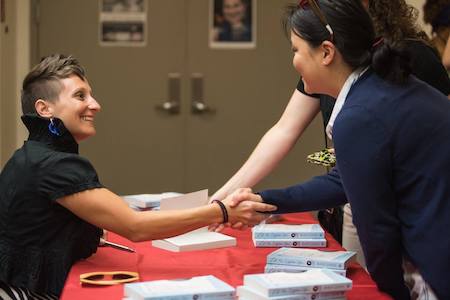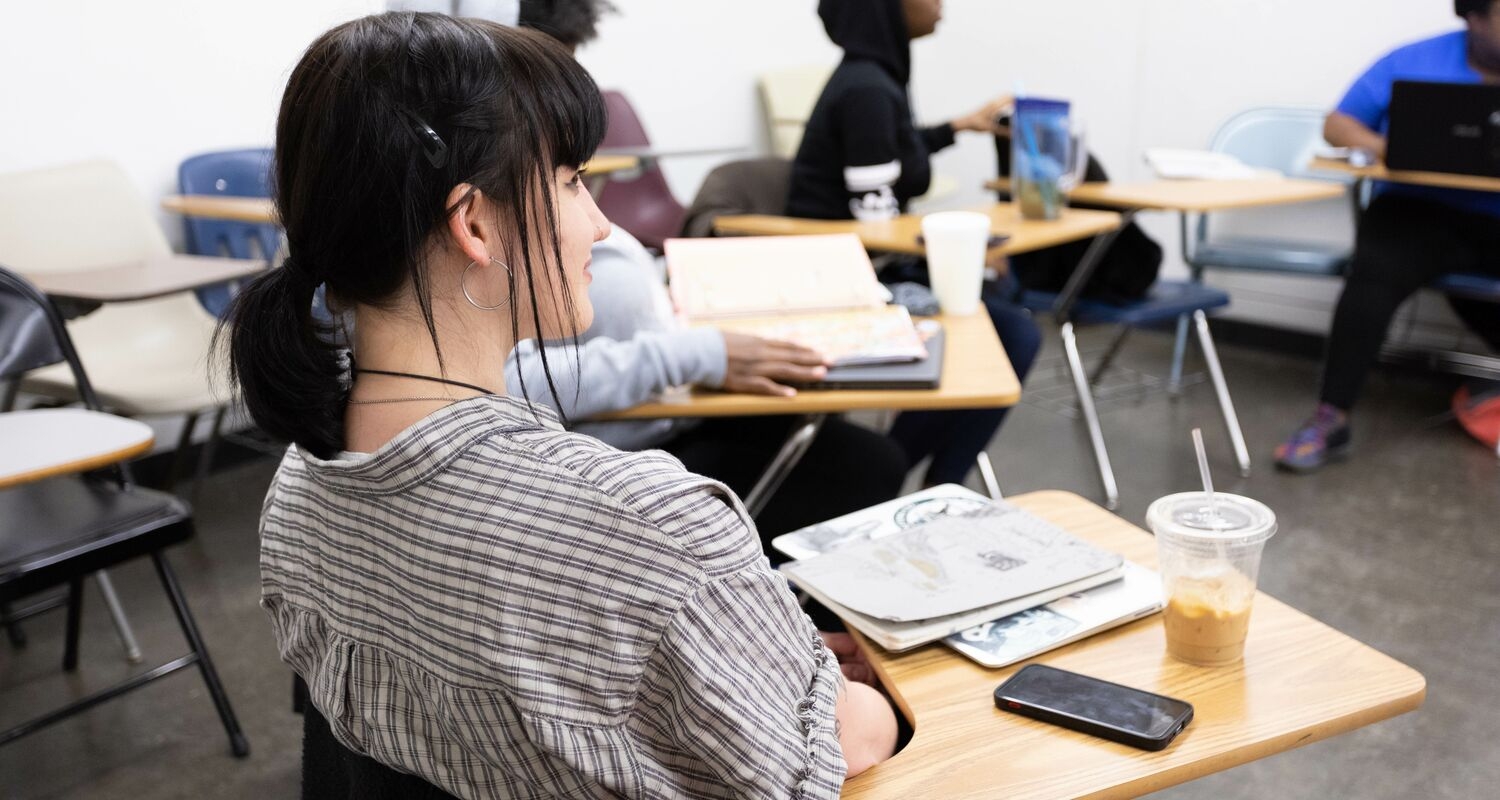
Creative Writing (BFA)
The Bachelor of Fine Arts program in Creative Writing (BFA) offers University of the Arts students a welcoming, community-based classroom setting in which they are able to hone their craft as writers. Our faculty includes highly respected working writers, including Rahul Mehta, Elise Juska, and Steven Kleinman.
Our small class size, averaging 10-12 students, allows us to build a tight knit community of students and instructors, who get to know each other, and each other's work, intimately over the four year course of study. What sets our program apart from other Creative Writing BFA programs is the focus on studio learning through workshop courses. Each semester we offer courses in introductory, intermediate, and advanced poetry and short story writing in addition to a robust offering of literature courses and more focused craft workshops like Graphic Storytelling, Speculative Fiction, and Writing the Absurd.
Our students leave college ready to enter the professional world as poets, novelists, editors, publishers, storytellers, researchers and well prepared citizen intellectuals who are ready to meet the requirements of a changing economy with creativity and rigor.
While studying at UArts, you’ll be able to take advantage of a huge variety of minors and arts courses including music, theater and dance, and you’ll be able to collaborate with your peers in an inspiring, artistic environment.
The Ideal Student
The ideal student for the BFA in Creative Writing is passionate about writing and loves to read. They will be interested in storytelling, expanding their understanding of the world, and developing their knowledge and grasp of the technical skills needed to be the next major voice in poetry, the short story or the novel. You do not need to have prior experience with the workshop model, nor with formal Creative Writing courses. The ideal student wants to develop their voice and learn how to share it with others.
An Inclusive Workshop Model
Our program utilizes the workshop model for many of our courses. The workshop model puts the emphasis for learning on student work. We meet weekly to discuss writing that is shared by your fellow students. We encourage students to pursue their vision, and use our constructive courses as a studio in which to experiment, create, and hone their vision and craft as writers.
As students advance, they pursue large-scale independent projects culminating with the writing and printing of a senior thesis, a book length novel, short story collection, or collection of poetry. Our workshop courses encourage critical thinking, inquiry, world building among other skills that students find applicable in a variety of professional fields.
Professional Opportunities
Though internships and courses about careers in the industry, you’ll graduate with practical experiences to enter the writing world. You’ll have networking opportunities during the Visiting Writers Series, when guest authors engage students in contemporary discourse. Our alumni have gone on to Master of Fine Arts programs around the country and are publishing in the finest literary journals. Our internship program has added regular internships through organizations like Bluestoop, Saturnalia Press, and The Grind.
Gallery
While in the BFA in Creative Writing program, you will have the opportunity to work on Underground Pool, our undergraduate-led literary journal. You’ll also gain editing, copy editing and publishing experience. Though internships and courses about careers in the industry, you’ll graduate with practical experiences to enter the writing world. Your undergraduate study will culminate in a finished collection of poems or a series of short stories.
Creative Writing Senior Theses
Underground Pool
Underground Pool, the student literary magazine of University of the Arts, is published each spring by the Creative Writing program. Students in Creative Writing and Graphic Design serve as each year's editors and designers. Every issue features short fiction, poetry and artwork by undergraduates from all majors at UArts.
Curriculum
As a student in the Creative Writing degree program, you’ll be prepared for a variety of professional writing careers. Within the major requirements, 45 of the 60 credits are dedicated exclusively to writing courses, including small, intensive workshops in poetry and fiction. You can also take “craft” seminars that are focused on specialized writing forms and genres, literature courses, a hands-on course in publishing, and a cross-disciplinary course requiring close collaboration with a student in another artistic field. You’ll graduate with a linked short story collection or book of poems that can be published or used as application materials for an MFA program or postgraduate fellowships.
Graduates of the Creative Writing program are expected to
- understand the elements of the poem and the short story and be able to use them, skillfully and deliberately, in their own work;
- be close and careful readers, able to analyze text with a writer’s eye;
- demonstrate knowledge of significant books, writers and trends in the contemporary landscape, as well as the context for the development of these models and traditions;
- write ably in a range of forms and genres;
- critique writing usefully and productively, delivering detailed, well-supported verbal and written peer feedback;
- find and articulate connections between their writing and other artistic disciplines;
- demonstrate practical knowledge of producing a literary magazine;
- hone public speaking skills by reading work aloud, introducing visiting writers and participating in public readings and other presentations;
- engage in thorough, substantial revision of written work;
- demonstrate a mature awareness of their own process of writing and revising, both in written self-assessments and exit interview;
- produce a final portfolio of professional-quality writing; and
- have something to say.
Sample Curriculum
Duration: Four years, full time
Credits: 120 credits
Major requirements: 63 credits
Discipline history: 9 credits
Critical Studies: 33 credits
Free electives: 15 credits
First Year
Fall Semester: 15 credits
Intro to Contemporary Poetry (3c)
Intro to Contemporary Short Story (3c)
The Writing Life (3c)
Writing I Placement (3c)
Free elective (your choice) (3c)
Spring Semester: 15 credits
Intro to Contemporary Poetry II (3c)
Intro to Contemporary Short Story II (3c)
Science course (your Choice) (3c)
Writing II Placement (3c)
Free elective (your choice) (3c)
Second Year
Fall Semester: 15 credits
Intermediate Short Story Workshop (3c)
Craft Seminar (your choice)* (3c)
Literature course (your choice)** (3c)
Poetry & Poetics (3c)
Critical Studies (your choice) (3c)
Spring Semester: 15 credits
Intermediate Poetry Workshop (3c)
Craft Seminar (your choice)* (3c)
Literature course (your choice)** (3c)
The Short Story (3c)
Critical Studies (your choice) (3c)
*Craft seminars offered at this level include courses like Poetic Translations & Adaptations, Travel Writing, Graphic Storytelling, Memoir / Flash Fiction and Creative Nonfiction.
**Literature courses at this level cover topics like African American Literature, Lyric Poetry, Women Writers, Myths and Murders: Ancient Greek Drama and Queer Literature.
Third Year
Fall Semester: 15 credits
Literary Editing & Publishing (3c)
Craft Seminar (your choice)* (3c)
High Modernism (3c)
Critical Studies (your choice) (3c)
Critical Studies (your choice) (3c)
Spring Semester: 15 credits
Careers & Community (3c)
Advanced Workshop in Poetry or Short Story (3c)
Literature course (your choice)** (3c)
Critical Studies (your choice) (3c)
Critical Studies (your choice) (3c)
*Craft seminars offered at this level include courses like Poetic Translations & Adaptations, Travel Writing, Graphic Storytelling, Memoir / Flash Fiction and Creative Nonfiction.
**Literature courses at this level cover topics like African American Literature, Lyric Poetry, Women Writers, Myths and Murders: Ancient Greek Drama and Queer Literature.
Fourth Year
Fall Semester: 15 credits
Senior Seminar: Poetry I or Short Story I (3c)
Craft Seminar (your choice)* (3c)
Literature course (your choice)** (3c)
Critical Studies (your choice) (3c)
Free elective (your choice) (3c)
Spring Semester: 15 credits
Senior Seminar: Poetry II or Short Story II (3c)
Craft Seminar (your choice)* (3c)
Literature course (your choice)** (3c)
Free elective (your choice) (3c)
Free elective (your choice) (3c)
*Craft seminars offered at this level include courses like Poetic Translations & Adaptations, Travel Writing, Graphic Storytelling, Memoir / Flash Fiction and Creative Nonfiction.
**Literature courses at this level cover topics like African American Literature, Lyric Poetry, Women Writers, Myths and Murders: Ancient Greek Drama and Queer Literature.
Explore the Full Curriculum
Student Experience
As a student in a truly arts-centered university, you’ll have many opportunities to collaborate with students in other majors. You might work with Illustration and Graphic Design students on our popular undergraduate literary magazine, Underground Pool. A poet or fiction writer might team up with a music major to create a joint artistic work in our Writing and Collaboration course. Students in the Illustration program design author portraits and posters for the Visiting Writers Series each year, a tradition that started in 2014.
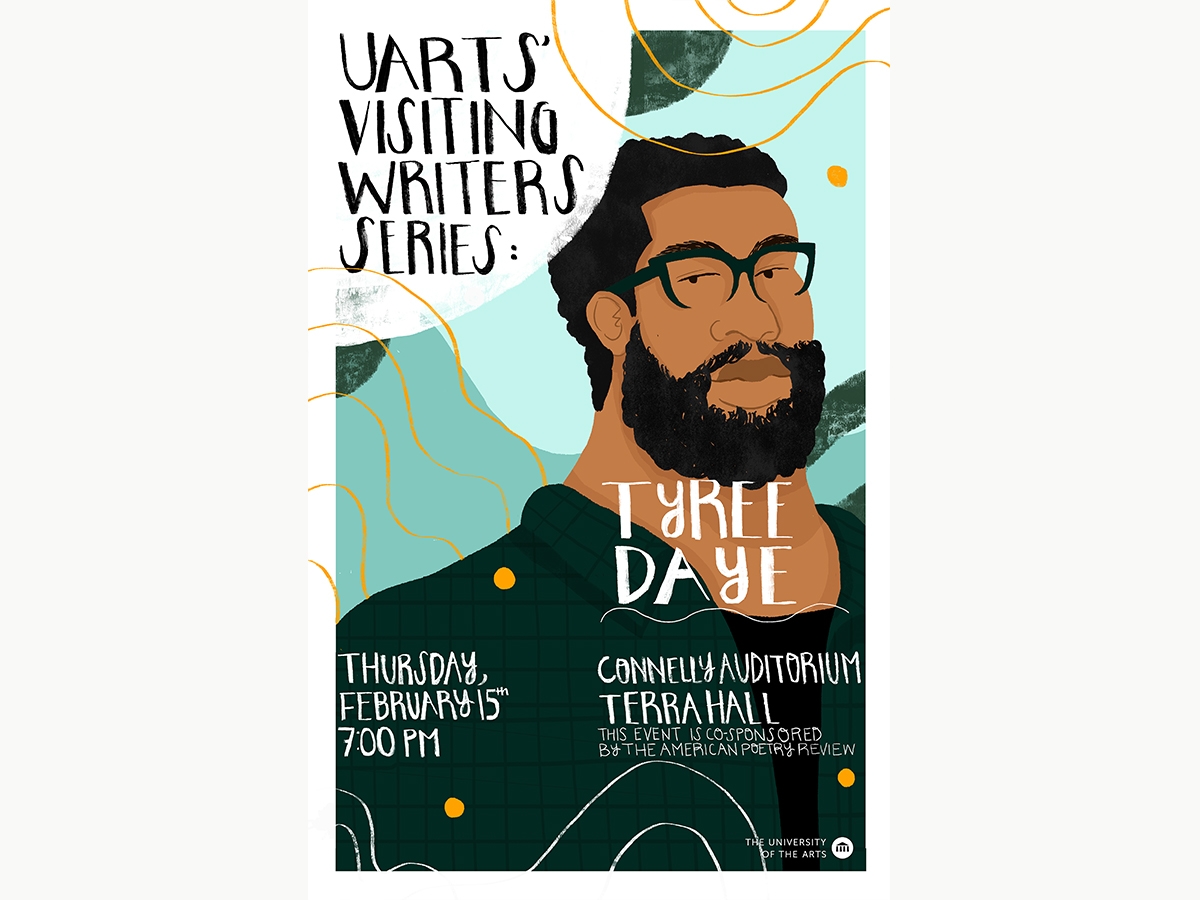
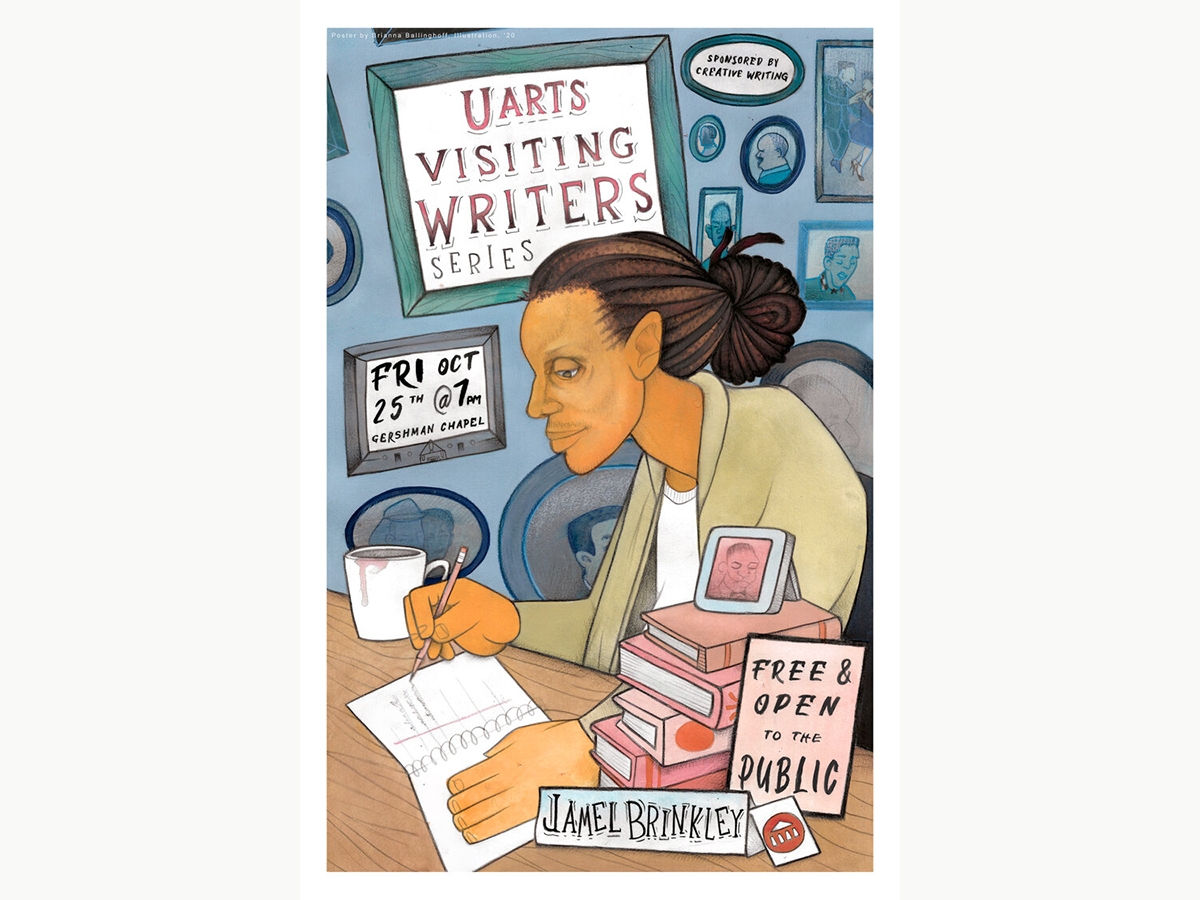
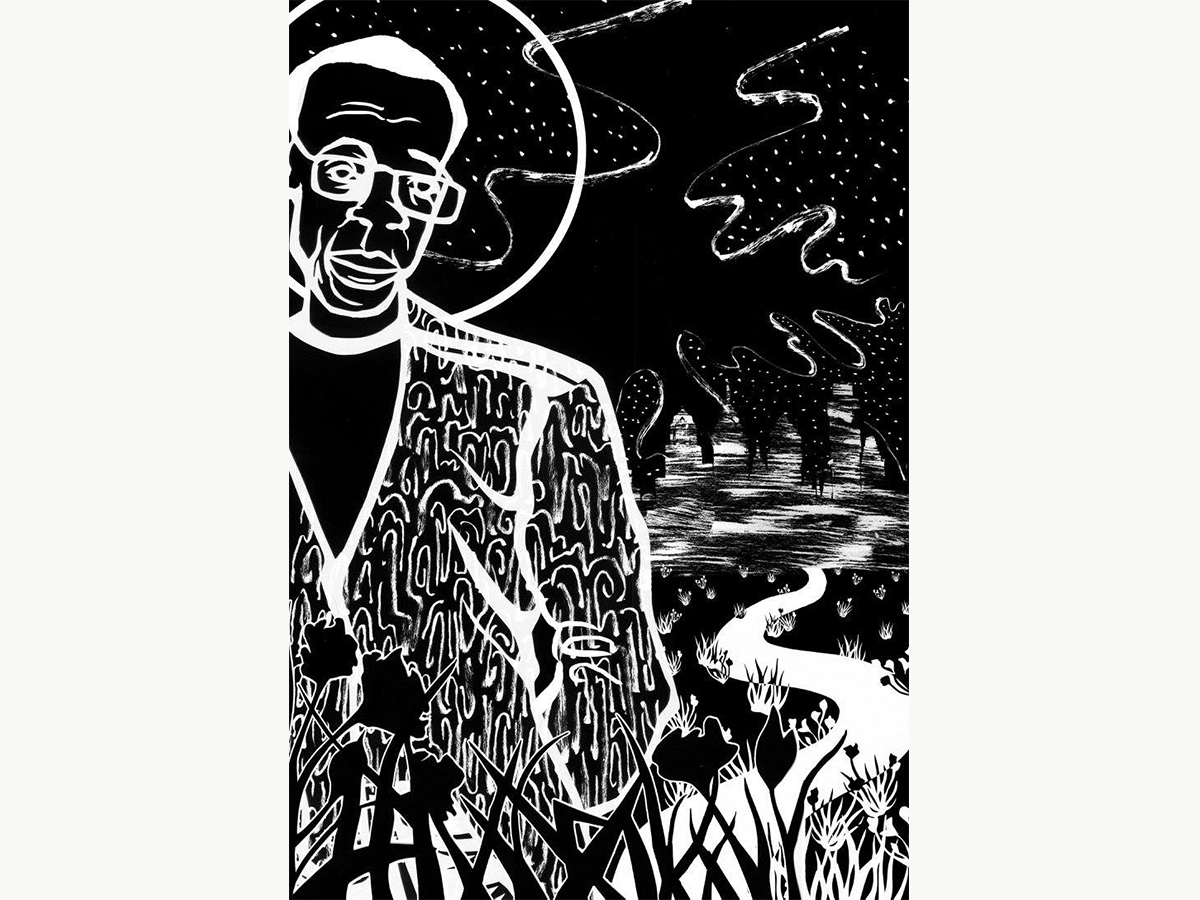
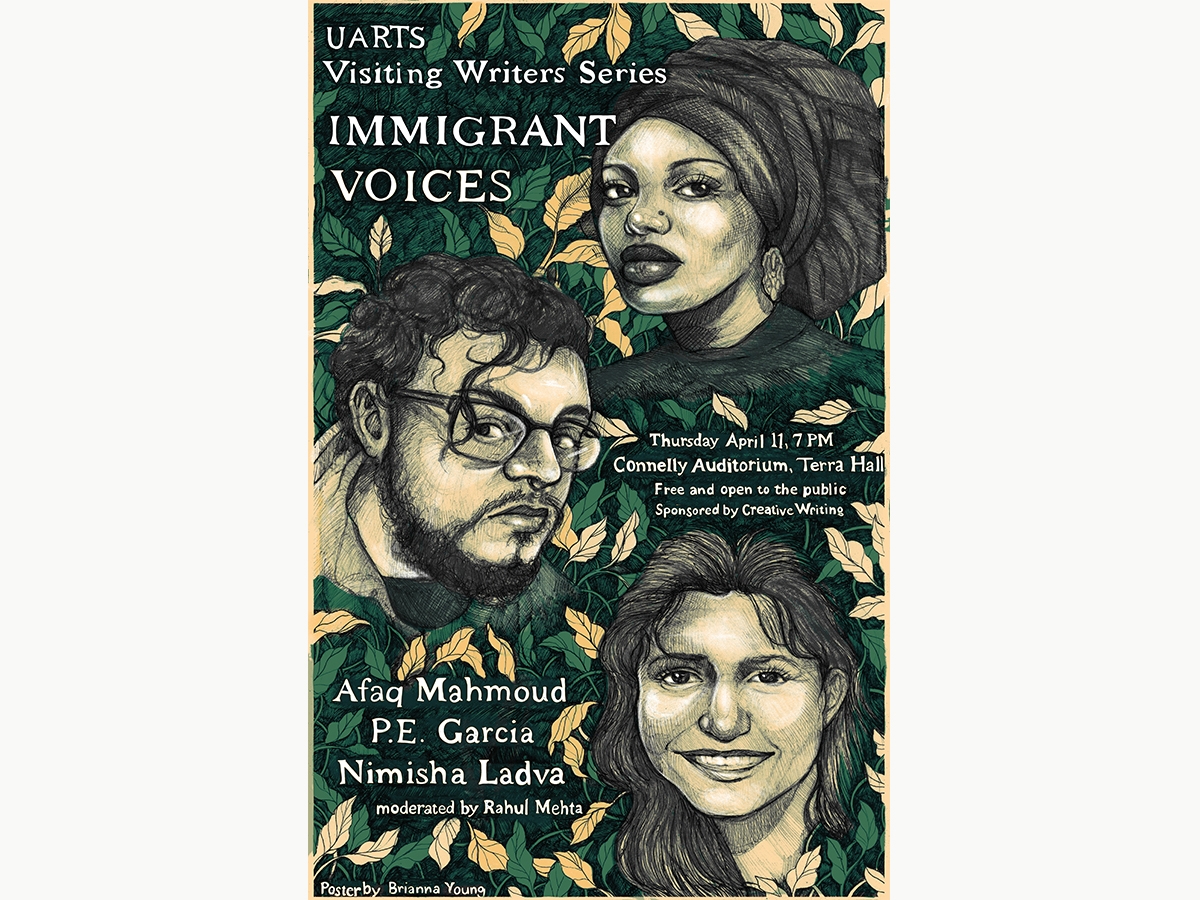
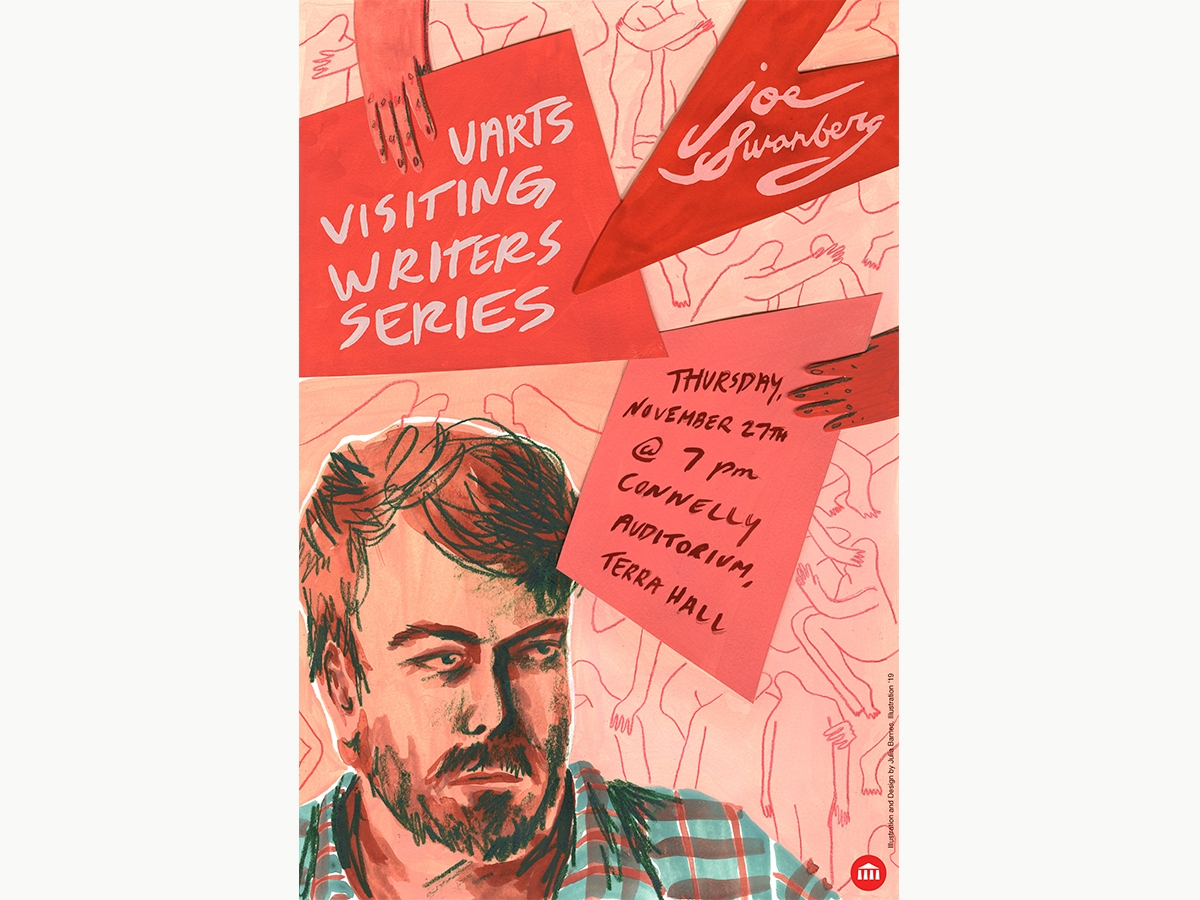
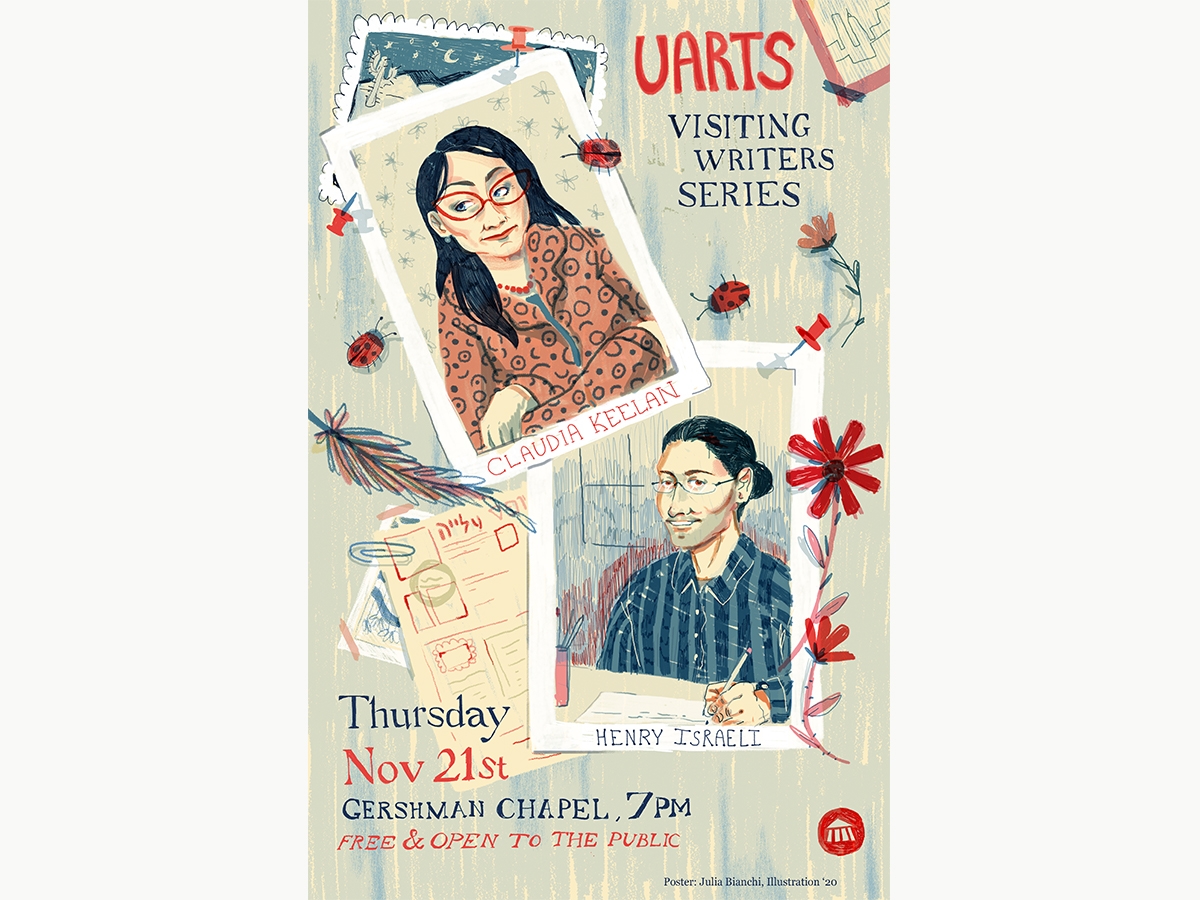
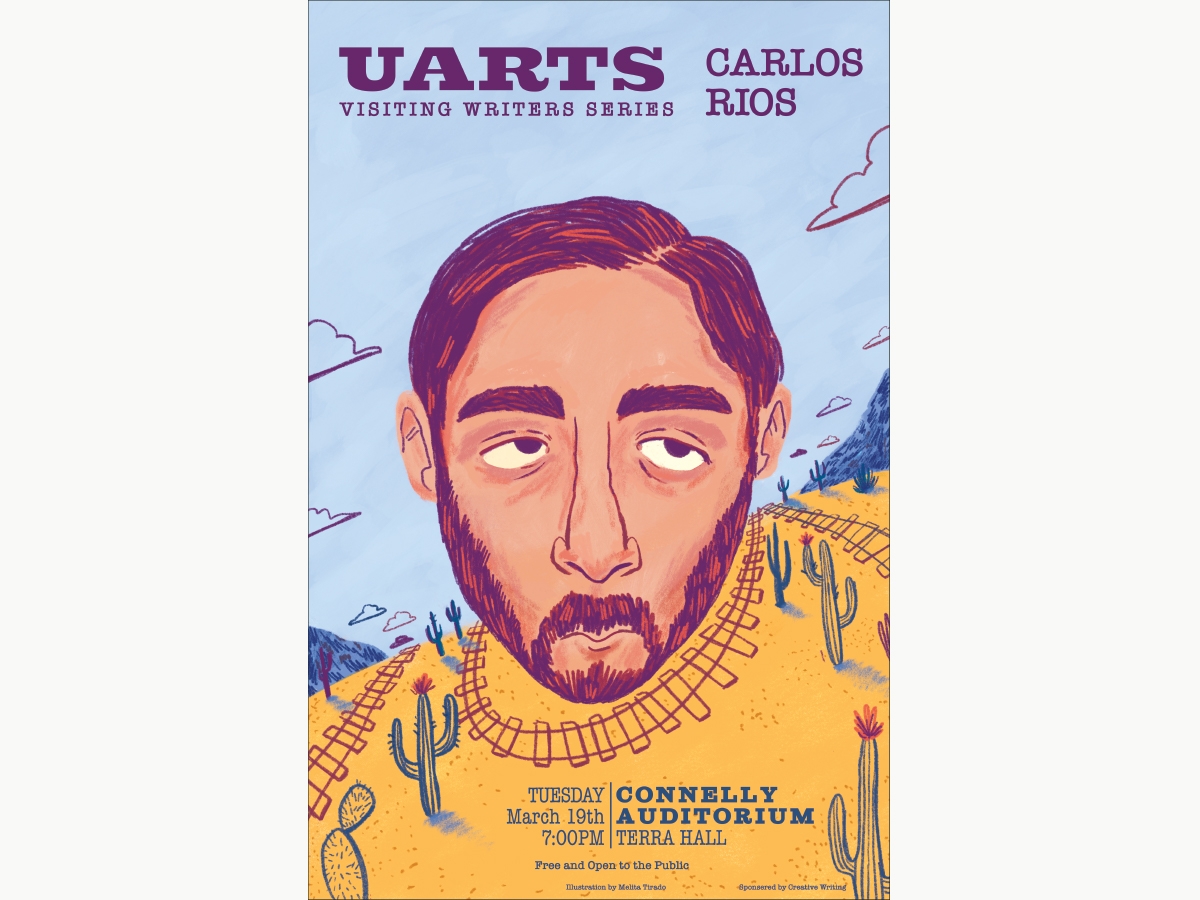
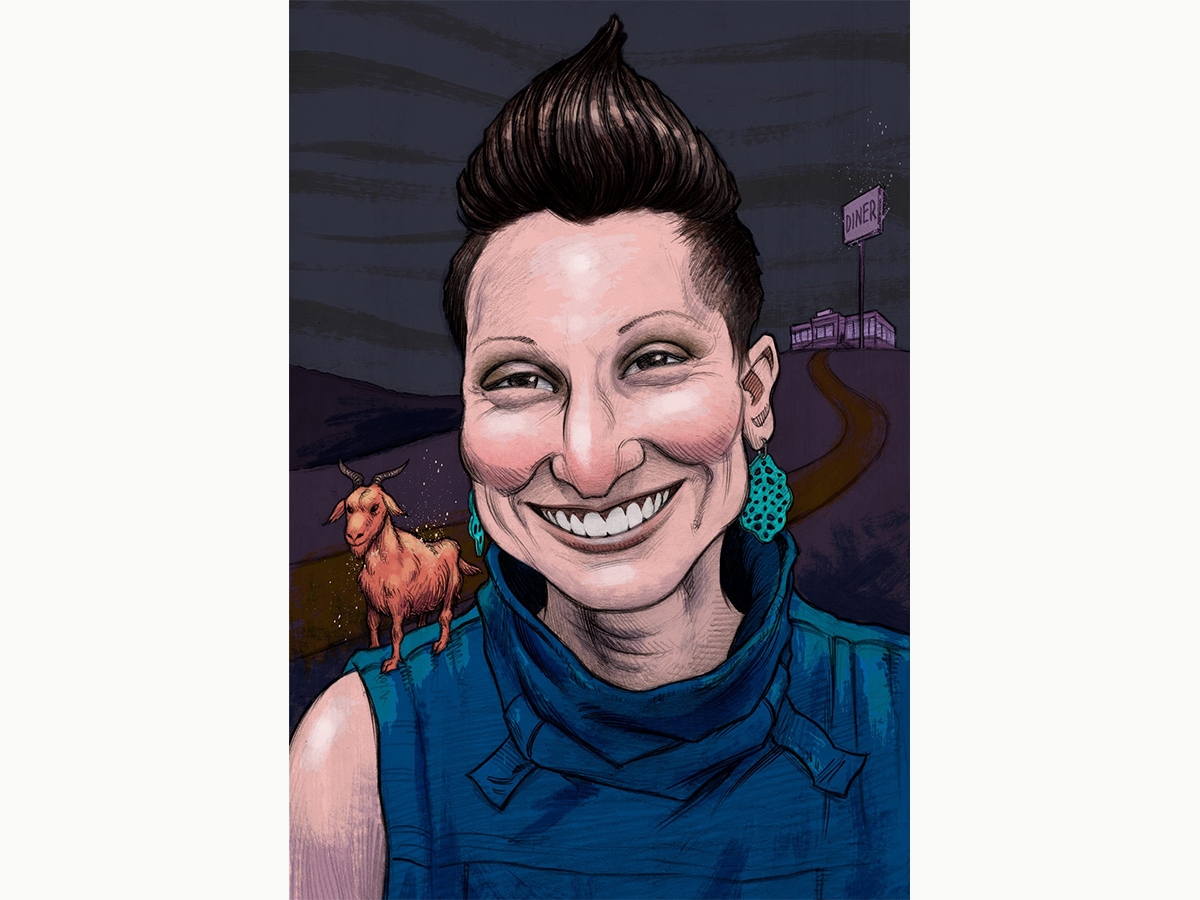
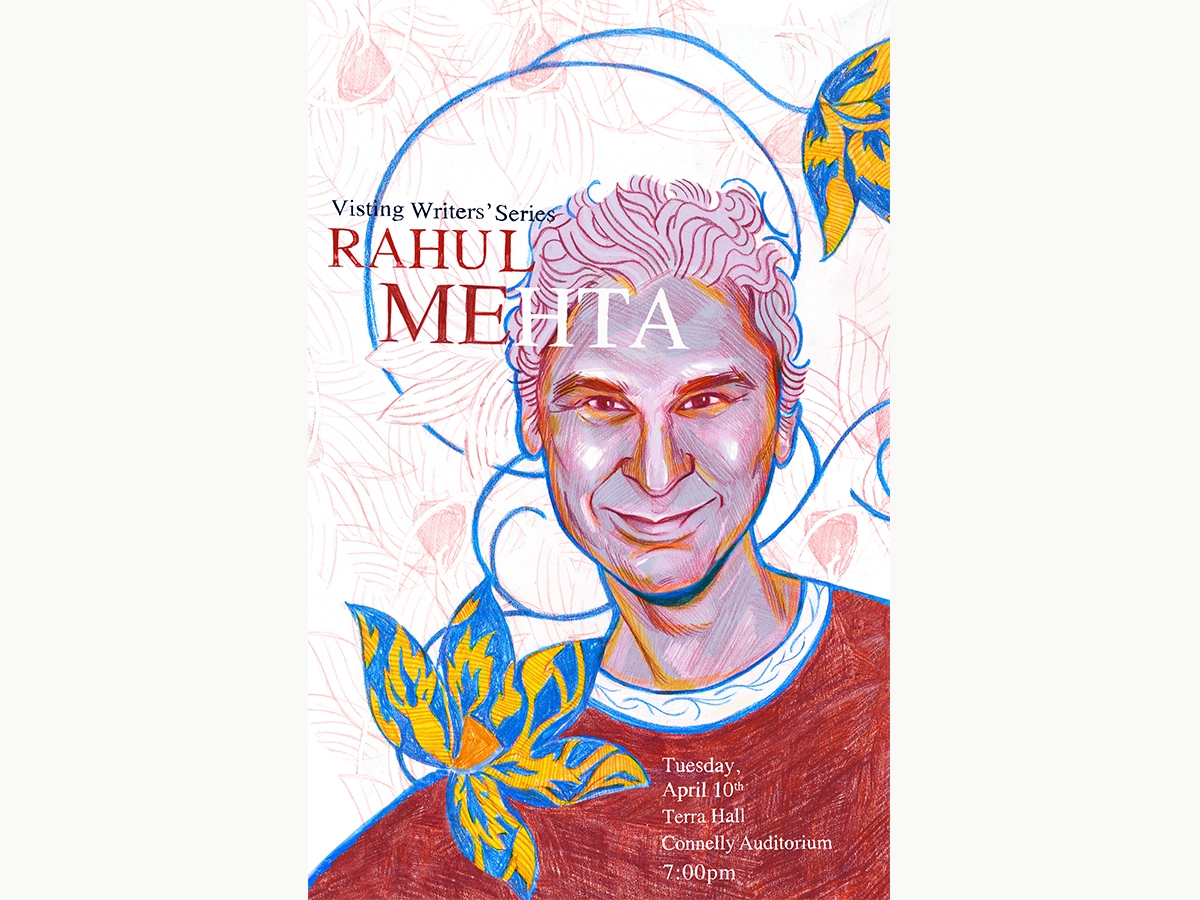
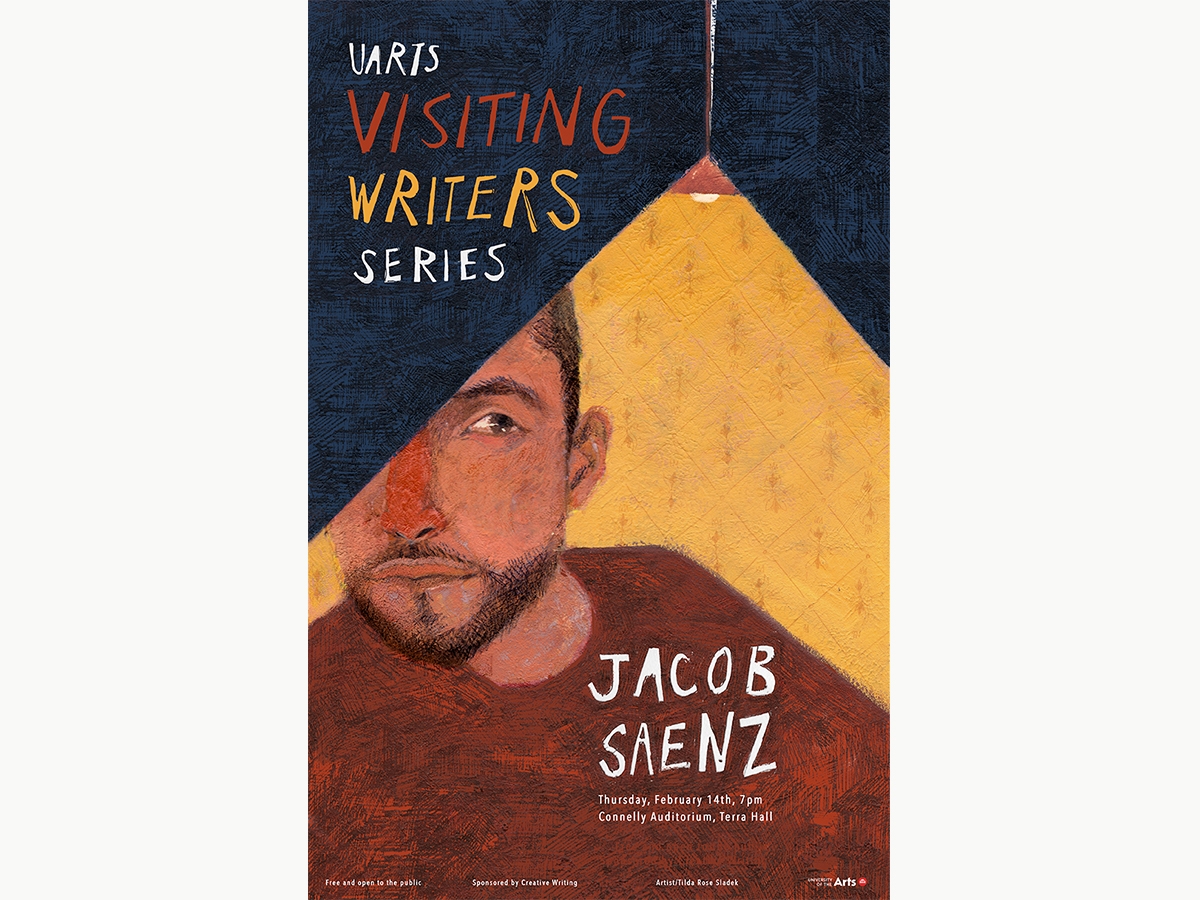
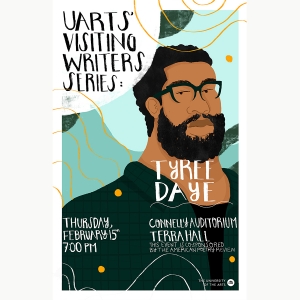
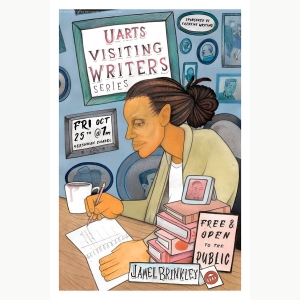
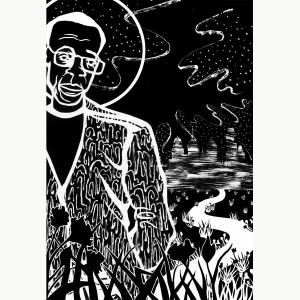
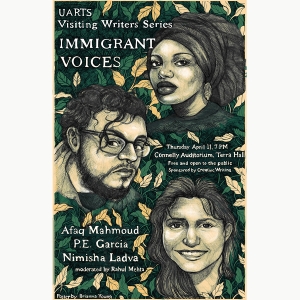
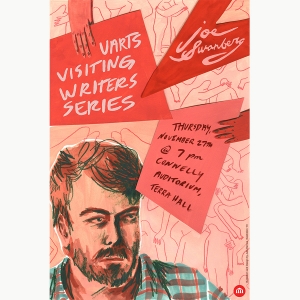
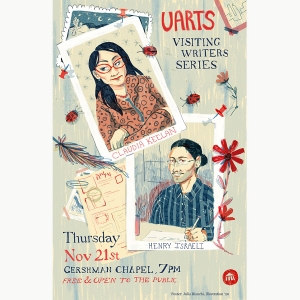
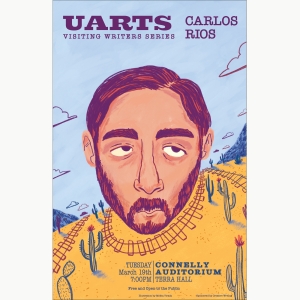
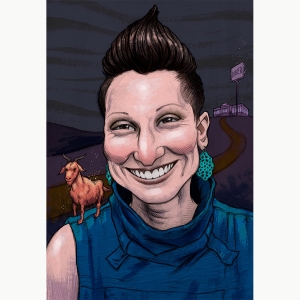
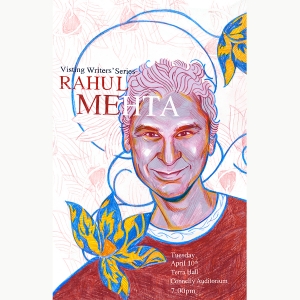
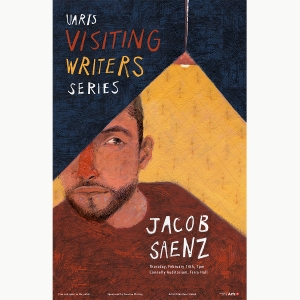
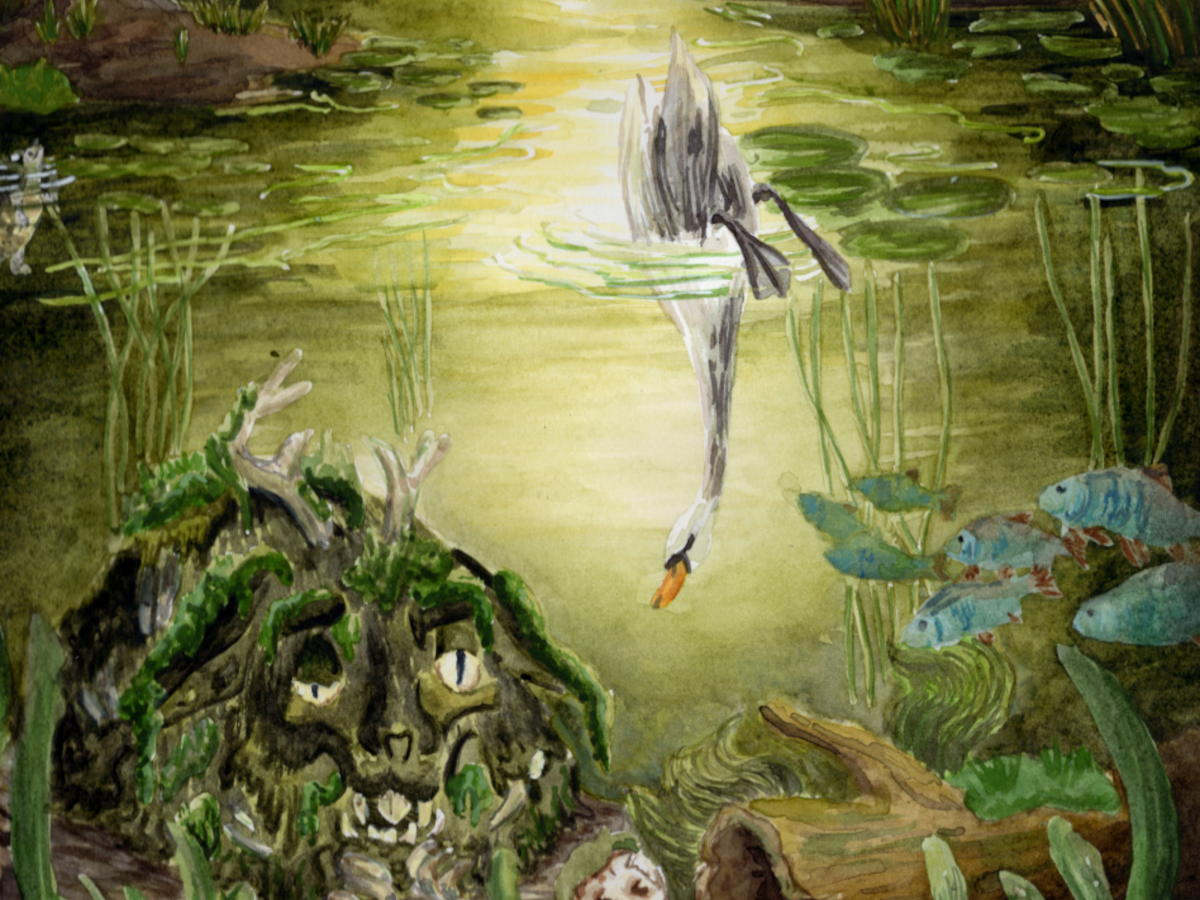
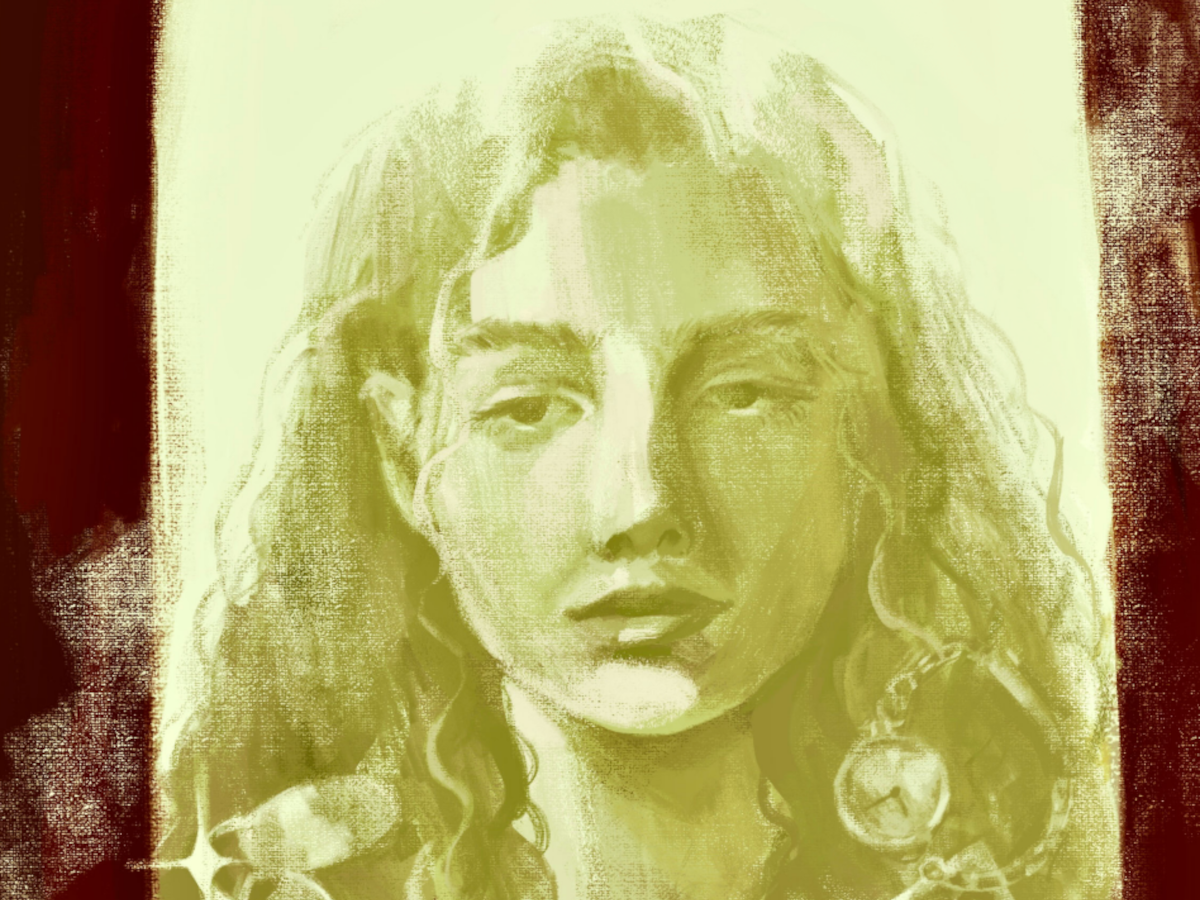
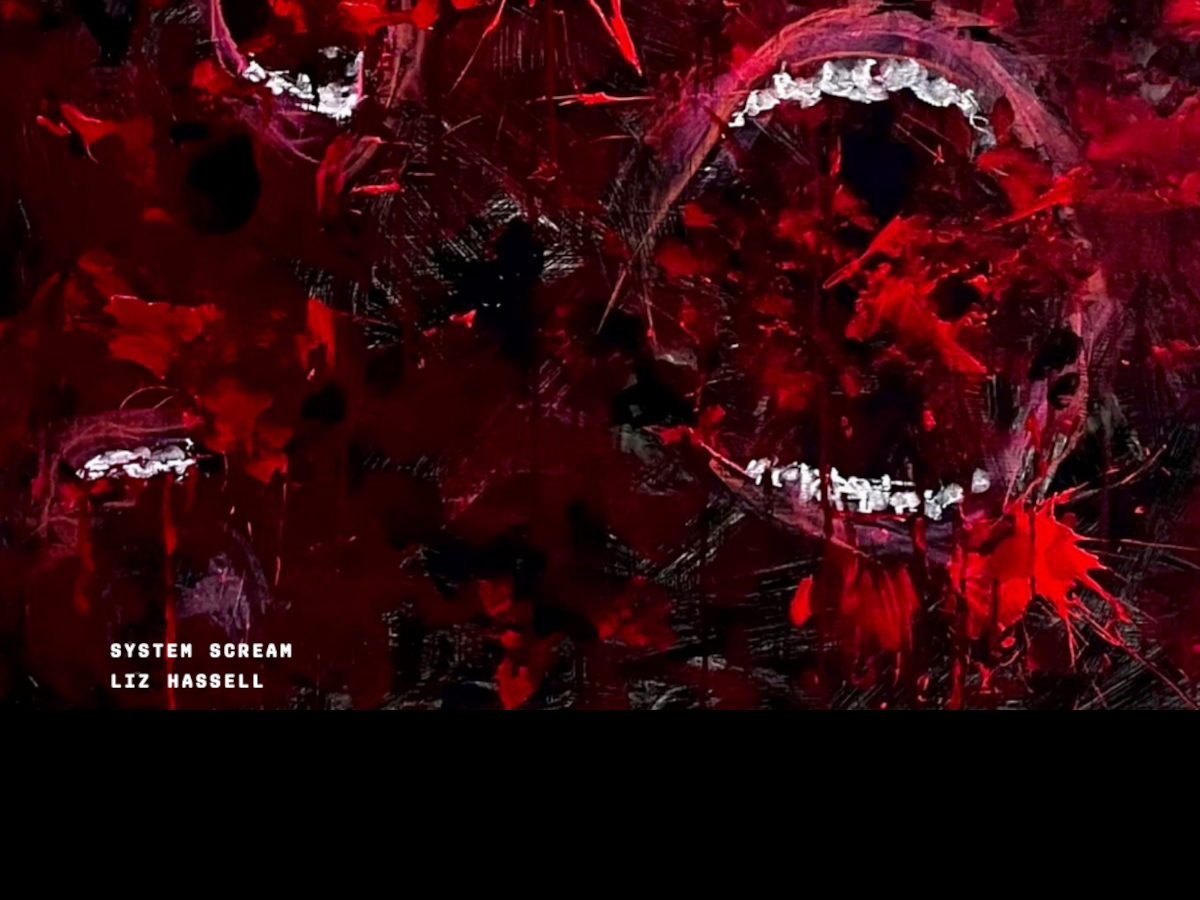
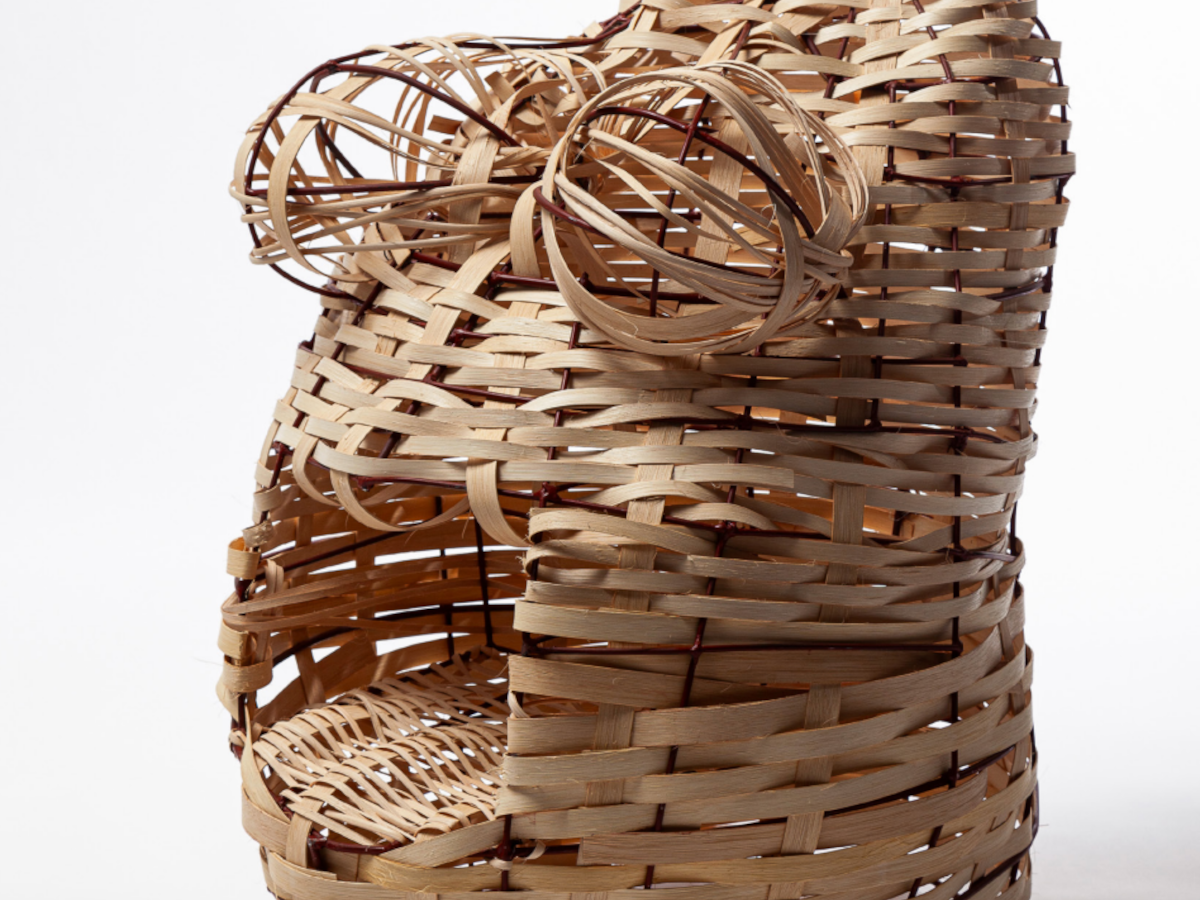
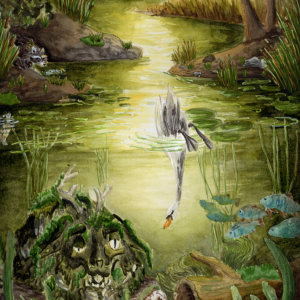
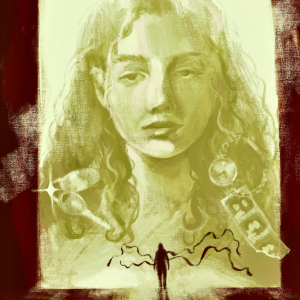
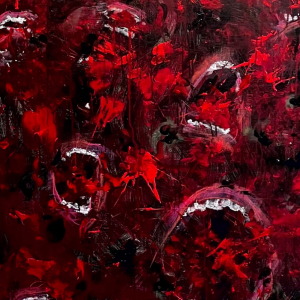
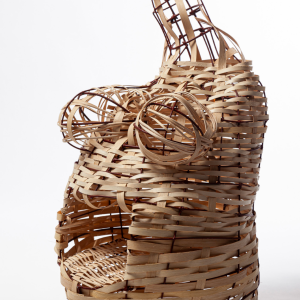
Underground Pool, the student literary magazine of University of the Arts, is published each spring by the Creative Writing program. Students in Creative Writing and Graphic Design serve as each year's editors and designers. Every issue features short fiction, poetry and artwork by undergraduates from all majors at UArts.
Regarding the 2024 edition:
When prompted to consider the theme for this year’s issue, we thought about what would matter to students, peers, ourselves. Time at university is often a period of transition, and we latched onto that idea. With the theme in-between— hyphenated or not, the argument may go—relevant memories were constantly appearing and new moments making themselves known. One draft complete, time for the next; one semester finished, let’s get through the next.
Student Profiles
Faculty Profiles
Our faculty are award-winning writers active in their field outside the classroom. They use their industry expertise and love for education to provide mentorship, often continuing conversations about texts or career advice long after class ends. The relationships you’ll build with faculty will continue beyond graduation.
Alumni & Careers
Career Development
Throughout your studies, you’ll take courses that prepare you to land your desired career. You’ll build a portfolio of work during Senior Seminar and learn about professional opportunities in the writing field during Careers & Community. You’ll have the opportunity to gain professional experience and a behind-the-scenes view of the writing industry during an internship. Though students are responsible for finding their own internships, faculty often use industry contacts to connect students with opportunities in the field. Throughout these experiences, you’ll develop the skills needed to succeed in the field, such as adaptability, creativity, critical thinking, persuasion and social perceptiveness.
Internships that have previously hosted UArts students include
-
The American Poetry Review
-
CAPA Philly
-
Cleaver Magazine
-
Esquire Magazine
-
Folk Arts Cultural Treasures Charter School
-
Metro Philly
-
Mighty Writers
-
Neon Butterfly
-
Out and About Magazine
-
Philadelphia Magazine
-
Philadelphia Style Magazine
-
Study Breaks magazine
-
Tail Fly Fishing Magazine
-
University of Pennsylvania
Alumni
Graduates of Creative Writing are accomplished, award-winning writers who have had works published in magazines, journals and more. Alumni can be seen around Philadelphia practicing in a variety of fields, as Philadelphia’s regional arts and culture sector has a $4.1B effect on the area’s economy and creates the equivalent of 55,225 full-time jobs.* Nationwide, Creative Writing alumni make up part of the 131,200 jobs for writers and authors.**
*Agenda: Prosperity, a 2017 study by Greater Philadelphia Cultural Alliance
**Bureau of Labor Statistics, U.S. Department of Labor, Occupational Outlook Handbook, Writers and Authors
As the industry continues to grow, graduates find themselves in a variety of roles. Common careers for Creative Writing majors include
- Author
- Copywriter
- Editor
- Podcaster
- Journalist
- Writing teacher
- Communications Manager
How to Apply
UArts offers recommended priority deadlines; students who apply and submit all required materials by the priority deadline will receive first consideration for scholarship aid from UArts. Applications received after the priority deadline will be reviewed on a rolling, space-available basis.
International students requiring an F-1 visa for study in the U.S. might be subject to earlier deadlines to provide time for completion of the visa process. Contact Admissions for guidance if you are an international student who wishes to apply after the priority deadline.
Spring 2024 priority deadline: Oct. 15, 2023
Fall 2024 priority deadline: Feb. 15, 2024
We cannot accept spring 2024 applications after Jan. 8, 2024, and cannot accept fall 2024 applications after Aug. 16, 2024.
The following materials are required for your application.
Start or resume your application.
-
The application includes two required short-answer questions: What excites you about UArts? What inspires you?
If you qualify for a fee waiver from NACAC, CollegeBoard, UArts or another source, indicate that on your application. If the cost of the application fee is a barrier, contact Admissions to request a fee waiver code.
-
Official transcripts must be sent directly from your school by mail, email or a secure electronic document-delivery service.
-
International transcript requirements
-
If you’ve attended high school outside the U.S., read the additional guidelines for international transcripts.
-
-
Transfer student transcript requirements
-
High school transcripts may be waived for transfer applicants who have completed a minimum of 24 credits of college-level coursework, including a minimum of 18 academic, non-studio credits.
-
Official college transcript(s)
-
Official transcripts must be sent directly from all the colleges you have attended by mail, email or a secure electronic document-delivery service.
-
If you’ve attended college outside the U.S., you are required to have an official course-by-course evaluation of your college coursework sent to UArts. Additional guidelines for international transcripts are available.
-
-
A portfolio is required for all Art, Design, Film and Writing programs. Your portfolio may be uploaded during the application process or via your applicant status portal after submission. You must confirm when your submission is complete via the linked electronic form before your portfolio can be reviewed for admission.
Apply Now
About the School of Art
The School of Art at University of the Arts deeply values and celebrates creative curiosity, interdisciplinary collaboration and exploration of numerous media and practices. You will be professionally prepared for a creative practice that emphasizes critical thinking and technical skill. You can create your own education through interdisciplinary learning and mixed media, or focus on a chosen discipline. No matter your path, you’ll learn to express your personal vision and innovate your chosen artforms.
Frequently asked questions about the Creative Writing BFA program.
A Creative Writing degree opens up professional opportunities such as screenwriting, fiction and nonfiction writing, poetry, editing, or related fields, such as publishing, journalism, advertising and communications.
Creative Writing can be a good major for individuals passionate about writing and storytelling. It allows you to develop strong writing skills, creativity and critical thinking abilities, which are valuable in many professional fields beyond writing itself.
Creative writing is important because it nurtures self-expression, imagination and empathy. It encourages the exploration of diverse perspectives, fosters critical thinking and communication skills, and enriches cultural and literary landscapes.
It is possible to become a teacher in the field of creative writing without having a degree in the specific topic, though a related undergraduate degree is usually required. If you know that creative writing is the academic field you hope to pursue as a teacher, getting a degree in creative writing is the most relevant and helpful for your purposes. It’s advisable to research the specific requirements of your desired teaching position and consider pursuing appropriate licensure or certification programs, as well as the most relevant undergraduate degree.
Events
Visiting Writers Series
Each year, the Visiting Writers Series, sponsored by the Creative Writing program, brings at least two acclaimed poets and novelists to campus per semester. Our students engage with visiting authors and write and present introductions for guest speakers during the series. Visiting authors also come to classes and offer contemporary discourse and personal encouragement.
Fall 2023 Visiting Writers
October 12th Morgan Thomas
November 2nd Ruba Ahmad
Spring 2024 Visiting Writers
March 28th Joseph Thomas and CM Burroughs
All events are free and open to the public unless otherwise specified. For more information including time and location, please reach out to Steven Kleinman at skleinman@uarts.edu.
Past visiting writers have included Natalie Shapero, Shruti Swamy, Alexandra Chang, Eduardo C, Corral, Kazim Ali, Jamel Brinkley, Tyree Daye, Rachel Eliza Griffiths, Annie Liontas, Carmen Maria Machado, Afaq Mahmoud, Liz Moore, Joyce Carol Oates, Gregory Pardlo, Alicia Jo Rabins, Roger Reeves, David Simon, Darin Strass, Laura van den Berg and more.
Salons and Student Readings
Throughout the year the students hold salons, which are open mics run by members of the BFA program and are open to students interested in sharing their work. At the end of each year, the Creative Writing program hosts a student reading to celebrate graduating seniors.
Get Started
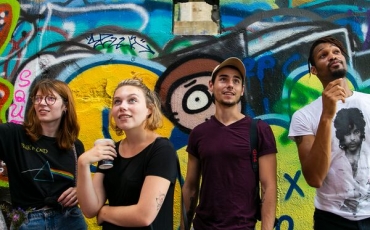
Start your application
Begin your application today. Our admissions team will help you throughout the process.
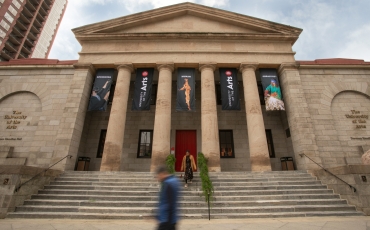
See UArts for yourself
The best way to get to know UArts is by visiting our campus in person. Come see a show, visit a gallery, and get to know the neighborhood.
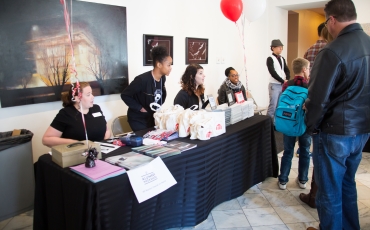
Not sure where to start?
We're glad you want to learn more. Our admissions team is happy to send additional information about our school.


